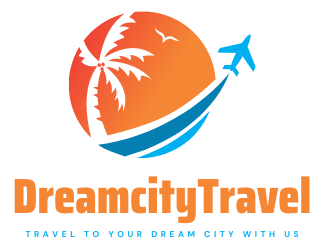
How to Plan a Trip On Your Budget?
Going on vacation is the best method to discover new and interesting experiences while also giving your mind a break. But, travel may be costly, so you will likely need to set aside money in advance and create a budget to cover your expenses. You can prepare a functional travel budget if you carefully analyze your spending, including the prices of both requirements and leisure activities.
Table of Contents
13 Tips on How to Plan a Trip On Your Budget?
Find out what mode of transportation you’ll be using
Getting to the destination of your choice will cost you a lot of money. Please find out how much it will cost you to go to your destination by various modes of transportation such as an aircraft, train, coach bus, rented automobile, or cruise ship. If the distance isn’t too big, rail travel, bus travel, or renting a vehicle may be less expensive options than flying, which is the choice that offers the fastest journey time. It would be best to consider the effects of each mode of transportation on the surrounding environment. The most expensive alternative is to go aboard a cruise ship since it provides the highest level of luxury and often includes several stops along the way.
Think about the public transportation in the area
When you arrive at your location, you will need additional transportation to move around within the surrounding area. While traveling inside a city, many individuals choose to use public transportation, such as taxis, ridesharing vehicles, public buses, or the subway. If you have some extra cash on hand, renting a vehicle in your current location will make traveling much simpler for you.
Use the search engine of your choice to research the public transportation options at your location. There is no guarantee that these possibilities will be available in every city. If you hire a vehicle, consider what car rental firms are located close to your hotel or the airport.
Think about the costs of accommodation
The cost of your hotel will be one of the more important aspects of your budget to consider. Because of the wide range in price and quality of available lodging, it is important to carefully analyze your specific requirements and the options at your location. If your location sees a high volume of visitors, there will probably be many places to stay, including hotels, motels, resorts, and bed-and-breakfasts. Choose a hotel that is situated near the sites that you want to see. This will be handy, and it will save you money on the prices of local transport. Consider the availability of room TVs, internet access, and swimming pools. Consider the quality of the available beds and bathrooms, the size of those spaces, whether they have air conditioning, and whether or not they provide a complimentary breakfast. Call the front desk if you have any queries not addressed by the information on their website. In return for performing some work around the hostel, you could stay there for a very low price or even for free in certain areas.
Consider the cost of food
While it is certain that you may get hungry when traveling, you should include food expenses in your budget. Remember that you will most likely be dining at restaurants and that the food prices vary substantially from one establishment to the next. To find out how much food costs in your area, use the search engine of your choice.
If you need to cut down on the money you spend on food, consider booking a hotel room equipped with a kitchenette or at least a microwave. After that, you should go to the supermarket and get some ready-to-eat meals that are simple to prepare.
Maintain an incidentals fund
While planning your vacation expenses, you should always leave room in your budget for some extra spending money. You may discover some expenses that you had not considered in the past. It may be something as easy as requiring sunscreen for the beach or something more serious like needing medication for an unexpected sickness.
Consider travel insurance
It is common practice to purchase travel insurance to protect oneself against high unanticipated costs. These costs can include medical care that your insurer will not cover because you will be traveling outside of their network, lost luggage, becoming a victim of theft, or being involved in a transportation accident. Travel insurance is often available for purchase at airports via automated teller machines and online.
Please find out how much it will cost to sightsee
Travelers often spend a good portion of their time seeing the local attractions. Consider the costs of transportation, admission, and any additional expenses that are explicitly associated with these excursions. Most historic sites, parks, and museums do not charge admission fees; nevertheless, a few may demand a nominal fee. Please research these places of interest in advance so that you may include them in your travel budget.
Do a currency conversion
You should convert your money into the currency of the nation you visit if you leave the country. You may find out what kind of money is used in the nation you’re going to by using the search engine of your choice to look up the name of the country you’ll be visiting. Nevertheless, many foreign nations that use various currencies also extensively accept U.S. Dollars, so you should research whether or not this is relevant in the location you will be visiting to determine whether or not you may spend dollars there.
Think of going on a trip that includes everything
Several companies provide all-inclusive vacation packages, which may help you save money by lowering the overall cost of your trip and making it simpler for you to create a budget. These often include boarding, meals, and other forms of entertainment, such as admission to theme parks or guided sightseeing excursions. Packages may often be tailored to meet the needs of those traveling alone, in pairs, or with children.
Consult with your loved ones and close pals
Inquire amongst your friends and acquaintances to see whether they have been to your location. Websites and online reviews may be useful, but it’s impossible to tell whether they’ve been swayed in any way by local advertisers or other factors like that. You may rely on your friends and relatives’ personal and trustworthy guidance.
Find out how much money you have available
Evaluate your current financial situation regarding the upcoming trip. Consider the continuous expenditures that you will be responsible for upon your return, such as the cost of your rent, electricity, and food. You don’t want to put undue pressure on yourself during your time off by worrying that you won’t have any money when you return.
Determine your entertainment expenses
Include the expense of going to amusement parks, experiencing the local nightlife, or seeing a performance in your financial planning if you intend to do any of these things. It may be helpful to sketch out a rough timetable of your daily plans for amusement and do some preliminary study on those activities before you start.
Please find out how much it will cost to sightsee
Travelers often spend a good portion of their time seeing the local attractions. Consider the costs of transportation, admission, and any additional expenses that are explicitly associated with these excursions. Most historic sites, parks, and museums do not charge admission fees; nevertheless, a few may demand a nominal fee. Research these places of interest to include them in your travel budget.

Leave a Reply
You must be logged in to post a comment.